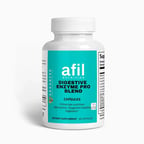Butter (Goat)
A goat's butter intolerance occurs when the body struggles to digest proteins or fats in goat's milk. Symptoms include digestive discomfort and bloating. It can be managed by using dairy-free alternatives or other butter types.
🐐 What is Goat’s butter?
Goat’s butter is a dairy product made from the cream of goat’s milk. It has a milder taste and a slightly different nutrient profile compared to cow’s butter. Often, it’s sought out by people looking for an alternative to cow’s milk butter due to its unique flavor and digestibility.
🤔 Why do I Have an Intolerance to it?
You may have an intolerance to goat's butter due to various factors that affect your ability to digest it properly. These factors can include sensitivity to specific components in goat's milk or your body’s overall digestive health.
-
Milk proteins: Difficulty digesting casein or other proteins found in goat's milk.
-
Fat composition: Sensitivity to the types of fats in goat's butter.
-
Genetics: Genetic factors can influence how your body processes dairy products.
-
Gut health: Imbalances in gut bacteria may affect your ability to digest dairy.
-
Enzyme production: A lack of necessary digestive enzymes can make it harder to break down dairy.
🛠️ What can I do About It?
-
🧈 Switch to dairy-free alternatives: Use plant-based butters made from oils like coconut, olive, or avocado.
-
🥛 Try lactose-free goat's butter: Some goat's butter products are processed to reduce lactose content.
-
🍽️ Consume small amounts: If you can tolerate small portions, limit your intake to avoid symptoms.
-
🐑 Look for other dairy options: Try using other animal milk butters like sheep’s butter, which may be easier to digest.
-
💊 Digestive aids: Lactase or other digestive enzyme supplements may help with breakdown.
-
🍏 Consult with a nutritionist: A professional can help identify suitable alternatives and ensure a balanced diet.
💊 Supplements That Support an Intolerance to Goat's Butter
-
Lactase Enzyme: Helps break down lactose in dairy products, making it easier for your body to digest.

-
Probiotics: Support gut health and balance digestive bacteria, which can improve digestion of dairy.

-
Activated Charcoal: May help reduce bloating and gas by absorbing excess air in the digestive tract.
-
Magnesium: Supports digestion and may alleviate symptoms like bloating or discomfort.

-
Vitamin D: Helps with overall digestive health and may be beneficial for individuals with lactose intolerance.

🌟 Why Might I Have an Intolerance to Goat's Butter but not Other Types of Butter?
You may have an intolerance to goat's butter but not other types of butter for several reasons related to the specific components of goat's milk:
-
Milk Proteins: Goat's butter contains different types of proteins, such as casein, that might be harder for you to digest compared to other butters.
-
Fat Composition: Goat's butter has a distinct fat profile that could cause discomfort, while other types of butter, like cow's butter or plant-based options, may not trigger the same response.
-
Lactose Sensitivity: Goat's butter contains some lactose, which might be difficult for your body to process, whereas other butters like dairy-free options have little to no lactose.
-
Individual Sensitivities: Your body might specifically react to certain proteins or fats in goat's butter but tolerate other types of butter more easily.
-
Processing Differences: The way goat's butter is processed or prepared might influence how your body reacts, while other butters are made differently or contain fewer irritants.
🍽️ Common Foods that are Made with Goat's Butter
-
Garlic Bread
-
Mashed Potatoes
-
Pasta
-
Grilled Vegetables
-
Baked Goods
✅ Alternatives to Goat's Butter
-
Plant-based Butter (e.g., coconut, olive, avocado)
-
Cow's Butter (if tolerated)
-
Sheep's Butter
-
Margarine
-
Nut Butters (e.g., almond, cashew, peanut)
-
Coconut Oil
-
Olive Oil
.png?width=100&height=75&name=AFIL%20Logo%20(1).png)